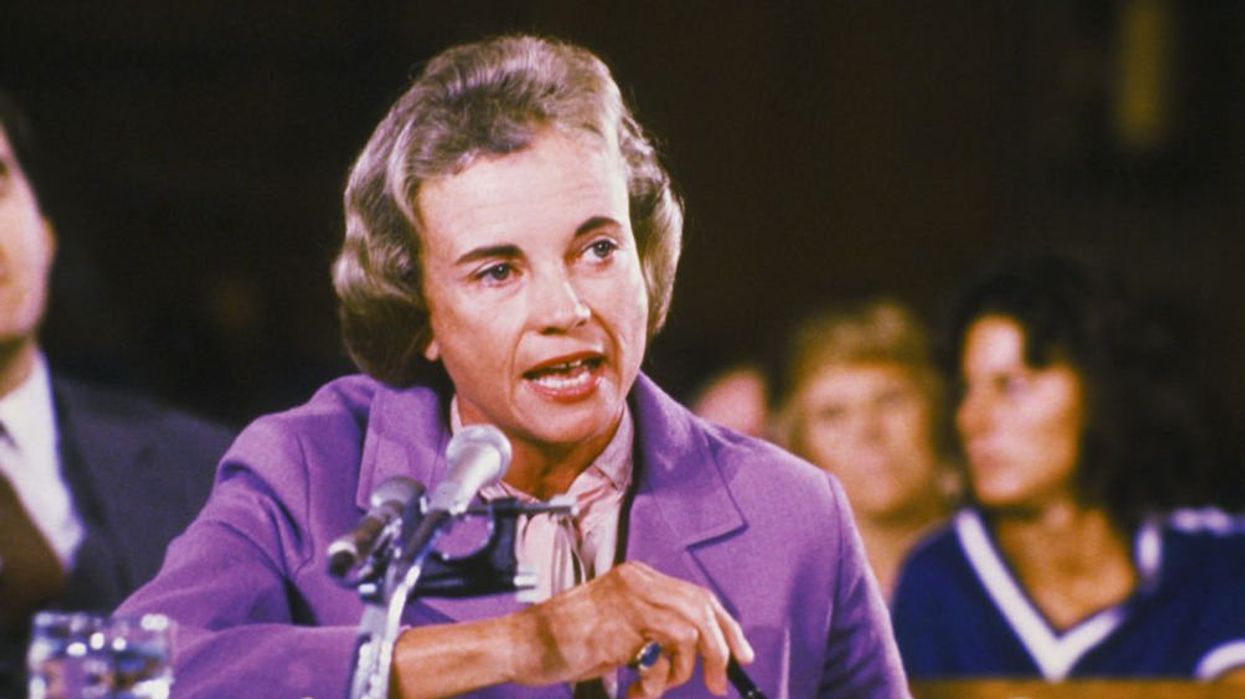
Keystone/Hulton Archive/Getty Images

Sandra Day O'Connor, who broke the glass ceiling and became the first woman to hold a seat on the Supreme Court, died Friday morning. She was 93 years old.
The Supreme Court said O'Connor died from "complications related to advanced dementia, probably Alzheimer’s, and a respiratory illness." O'Connor disclosed her diagnosis in 2018, saying she planned to withdraw from public life.
"We at the Supreme Court mourn the loss of a beloved colleague, a fiercely independent defender of the rule of law, and an eloquent advocate for civics education. And we celebrate her enduring legacy as a true public servant and patriot," Chief Justice John Roberts said in a statement.
O'Connor graduated from Stanford Law School in 1952 and worked tirelessly to overcome disadvantages for women in American society at the time.
For three years beginning in 1954, O'Connor served as a civilian attorney in the U.S. Army Quartermaster Corps while her husband, John Jay O'Connor, was deployed to Germany.
Upon returning to the U.S., O'Connor opened her own law firm. She took a several-year hiatus from practicing law after the birth of her third child before returning to work as an assistant state attorney general in Arizona. In 1969, O'Connor was appointed to fill a vacant seat in the Arizona State Senate, where she served until 1975 as a Republican. During her tenure as a lawmaker, O'Connor became the first woman in U.S. history to hold a majority leader post in a state legislature.
From January 1975 to December 1979, O'Connor served on the Maricopa County Superior Court before becoming a judge on the Arizona Court of Appeals.
In 1981, then-President Ronald Reagan nominated O'Connor to serve on the Supreme Court. Reagan described O'Connor as "truly a person for all seasons, possessing those unique qualities of temperament, fairness, intellectual capacity, and devotion to the public good which have characterized the 101 brethren who have preceded her."
The Senate unanimously confirmed O'Connor's nomination to the court, where she served until her retirement in January 2006.
On the bench, O'Connor was a moderate conservative justice who was not afraid to side with her liberal colleagues. O'Connor was often the "swing vote," having cast the deciding vote in a whopping 360 Supreme Court cases that were ultimately decided by a 5-4 vote.
Her court legacy includes her opinion in Planned Parenthood v. Casey (1992), which upheld the "essential holding" of Roe v. Wade, and Grutter v. Bollinger (2003), a landmark decision upholding affirmative action.
Like Blaze News? Bypass the censors, sign up for our newsletters, and get stories like this direct to your inbox. Sign up here!